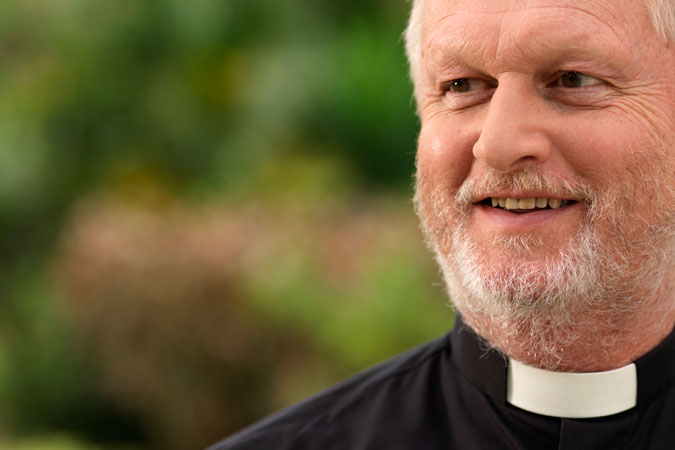
“It is a proper and grave duty,” reads the Code of Canon Law, “especially of pastors of souls to take care of the catechesis of the Christian people so that the living faith of the faithful becomes manifest and active through doctrinal instruction and the experience of Christian life.” (#773)
I may not remember much of my canon law from seminary, but whenever I see the word grave I know it refers to something that I can neither ignore nor gloss over. The Code of Canon Law is not usually my go-to text for much, but in this case, it reminds me that catechetical ministry is not optional for the pastor.
Outside the home, the parish is often the primary place for the evangelizing work of the Church among young people and their families. As a pastor, if I am going to take seriously my responsibilities in catechetical ministry, I need to be familiar with all that happens in the parish school and in the parish catechetical program. Collaboration among the school principal, the catechetical leader, and me is especially important if the overall catechetical efforts are integrated into the life of the entire parish. As family-centered catechesis continues to prove itself as an effective way to develop faith among our young people, more demands will be placed upon pastors. Engaging entire families to form children into lifelong disciples requires hands-on ministerial work. Nonetheless, the benefits can far outweigh the effort.
For example, the school at my parish offers an early-morning opportunity for parents and children to pray together followed by breakfast. At first, no more than 10 people participated; now, upward of 50 adults and children enjoy this engaging experience of prayer and fellowship that helps them grow together in their relationship with Jesus. The growth was the result of committed teachers and catechists, supportive administration and faculty, and the yearning for something more within parents and children alike.
Our parish catechetical program switched from Wednesday afternoons to Sunday mornings. After overcoming some logistical challenges, parents no longer drop off their children for religious education class—they now join them. This has encouraged families to participate in the Sunday Eucharist. My presence as a pastor supported both the catechetical leader’s efforts and the families’ engagement in catechesis. Perhaps more importantly, my support and encouragement of the catechetical leader through such a transition was imperative.
Such active support and presence may not always be easy for a pastor, whose concerns for the care of the parish are usually broad and demanding. To help me balance the broader demands of the parish with my responsibility to catechetical ministry, I use a little trick I learned from the DRE at my first parish. I asked her what she expected of me as the new priest in the parish. She pulled out a copy of the religious education calendar for the coming year and highlighted certain dates in one of three different colors: yellow meant that I should show up and say a few words, green meant that I should show up and smile, and blue meant that it would be nice if I stopped by to say hello (but there was no pressure for me to do so).
Catechetical ministry is indeed a grave responsibility for the pastor as a catechetical leader. With the right support and planning, it can be a hugely fruitful responsibility.





Very impressive and good catechesis that delivered in my cultural context and am so grateful in perusing the account of his journey.
Thanks for sharing, Steven!